What are you looking for at Aqrani library?
-
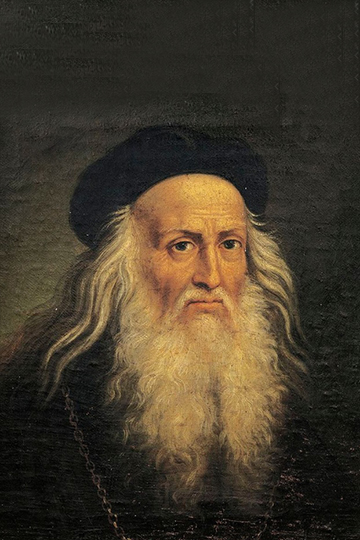
Leonardo Da Vinci
Leonardo da Vinci (14/15 April 1452 – 2 May 1519) was an Italian polymath of the High Renaissance who is widely considered one of the most diversely talented individuals ever to have lived. While his fame initially rested on his achievements as a painter, he also became known for his notebooks, in which he made drawings and notes on science and invention, these involve a variety of subjects including anatomy, astronomy, botany, cartography, painting, and palaeontology. Leonardo's genius epitomized the Renaissance humanist idea, nd his collective works compose a contribution to later generations of artists rivalled only by that of his contemporary Michelangelo. Properly named Leonardo di ser Piero da Vinci, Leonardo was born out of wedlock to a notary, Piero da Vinci, and a peasant woman, Caterina, in Vinci, in the region of Florence, Italy. Leonardo was educated in the studio of the renowned Italian painter Andrea del Verrocchio. Much of his earlier working life was spent in the service of Ludovico il Moro in Milan, and he later worked in Rome, Bologna and Venice. He spent his last three years in France, where he died in 1519. Although he had no formal academic training, many historians and scholars regard Leonardo as the prime exemplar of the "Renaissance Man" or "Universal Genius", an individual of "unquenchable curiosity" and "feverishly inventive imagination." According to art historian Helen Gardner, the scope and depth of his interests were without precedent in recorded history, and "his mind and personality seem to us superhuman, while the man himself mysterious and remote."[9] Scholars interpret his view of the world as being based in logic, though the empirical methods he used were unorthodox for his time.
-
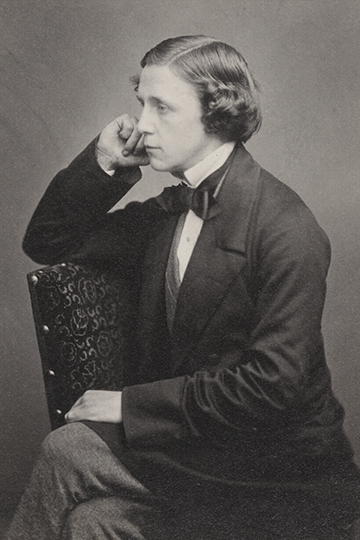
Lewis carroll
Charles Lutwidge Dodgson (27 January 1832 – 14 January 1898), better known by his pen name Lewis Carroll, was an English writer of children's fiction, notably Alice's Adventures in Wonderland and its sequel Through the Looking-Glass. He was noted for his facility with word play, logic, and fantasy. The poems Jabberwocky and The Hunting of the Snark are classified in the genre of literary nonsense. He was also a mathematician, photographer, inventor and Anglican deacon. Carroll came from a family of high-church Anglicans, and developed a long relationship with Christ Church, Oxford, where he lived for most of his life as a scholar and teacher. Alice Liddell, daughter of the Dean of Christ Church, Henry Liddell, is widely identified as the original for Alice in Wonderland, though Carroll always denied this. Scholars are divided about whether his relationship with children included an erotic component. In 1982, a memorial stone to Carroll was unveiled in Poets' Corner, Westminster Abbey. There are Lewis Carroll societies in many parts of the world dedicated to the enjoyment and promotion of his works.
-
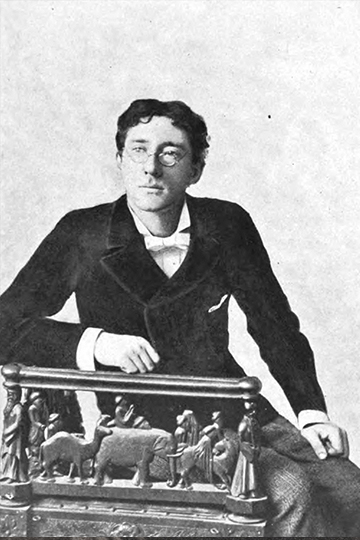
Lloyd Osbourne
Samuel Lloyd Osbourne (April 7, 1868 – May 22, 1947) was an American author and the stepson of the Scottish author Robert Louis Stevenson, with whom he co-authored three books and provided input and ideas on others. Lloyd Osbourne was born in San Francisco to Fanny Osbourne (née Vandegrift) and Samuel Osbourne, a lieutenant on the State Governor's staff. They had married when Fanny was just seventeen years of age, and Lloyd's elder sister Isobel Osbourne (or 'Belle') was born the following year. Samuel fought in the American Civil War, went with a friend sick with tuberculosis to California, and via San Francisco, he ended up in the silver mines of Nevada. Once settled there he sent for his family. Fanny and the five-year-old Isobel made the long journey via New York City, the isthmus of Panama, San Francisco, and finally by wagons and stage-coach to the mining camps of the Reese River, and the town of Austin in Lander County. Life was difficult in the mining town, and there were few women around. Fanny learned to shoot a pistol and to roll her own cigarettes. The family moved to Virginia City, Nevada. Samuel began philandering with saloon girls, and in 1866 he left to prospect for gold in the Coeur d'Alene Mountains. Fanny and her daughter journeyed to San Francisco. There was a rumour that Sam had been killed by a grizzly bear, but he returned to the family safe in 1868. Shortly thereafter Lloyd was born. Samuel continued philandering and Fanny returned to Indianapolis.
-
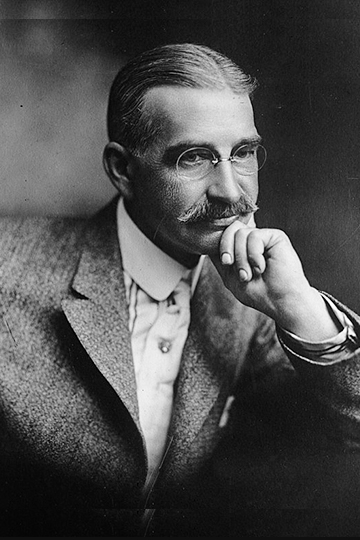
Lyman Frank Baum
Lyman Frank Baum (May 15, 1856 – May 6, 1919) was an American author best known for his children's books, particularly The Wonderful Wizard of Oz and its sequels. He wrote 14 novels in the Oz series, plus 41 other novels (not including four lost, unpublished novels), 83 short stories, over 200 poems, and at least 42 scripts. He made numerous attempts to bring his works to the stage and screen, the 1939 adaptation of the first Oz book became a landmark of 20th-century cinema. Born and raised in Upstate New York, Baum moved west after an unsuccessful stint as a theater producer and playwright. He and his wife opened a store in South Dakota and he edited and published a newspaper. They then moved to Chicago, where he worked as a newspaper reporter and published children's literature, coming out with the first Oz book in 1900. While continuing his writing, among his final projects he sought to establish a movie studio focused on children's films in Los Angeles, California. His works anticipated such later commonplaces as television, augmented reality, laptop computers (The Master Key), wireless telephones (Tik-Tok of Oz), women in high-risk and action-heavy occupations (Mary Louise in the Country), and the ubiquity of clothes advertising (Aunt Jane's Nieces at Work).
-

Mark Twain
Samuel Langhorne Clemens (November 30, 1835 – April 21, 1910), known by his pen name Mark Twain, was an American writer, humorist, entrepreneur, publisher, and lecturer. He was lauded as the "greatest humorist the United States has produced," and William Faulkner called him "the father of American literature". His novels include The Adventures of Tom Sawyer (1876) and its sequel, the Adventures of Huckleberry Finn (1884), the latter often called "The Great American Novel". Twain was raised in Hannibal, Missouri, which later provided the setting for Tom Sawyer and Huckleberry Finn. He served an apprenticeship with a printer and then worked as a typesetter, contributing articles to the newspaper of his older brother Orion Clemens. He later became a riverboat pilot on the Mississippi River before heading west to join Orion in Nevada. He referred humorously to his lack of success at mining, turning to journalism for the Virginia City Territorial Enterprise. His humorous story, "The Celebrated Jumping Frog of Calaveras County", was published in 1865, based on a story that he heard at Angels Hotel in Angels Camp, California, where he had spent some time as a miner. The short story brought international attention and was even translated into French. His wit and satire, in prose and in speech, earned praise from critics and peers, and he was a friend to presidents, artists, industrialists, and European royalty. Twain earned a great deal of money from his writings and lectures, but he invested in ventures that lost most of it—such as the Paige Compositor, a mechanical typesetter that failed because of its complexity and imprecision. He filed for bankruptcy in the wake of these financial setbacks, but in time overcame his financial troubles with the help of Henry Huttleston Rogers. He eventually paid all his creditors in full, even though his bankruptcy relieved him of having to do so. Twain was born shortly after an appearance of Halley's Comet, and he predicted that he would "go out with it" as well, he died the day after the comet made its closest approach to the Earth.
-
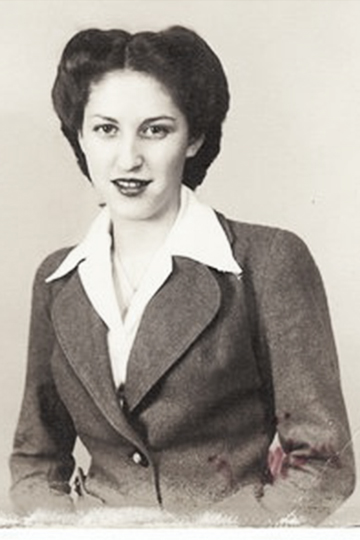
Mary Elizabeth Burt
Mary Elizabeth Burt (10 December 1925 - 15 February 2001) was an American writer and teacher.
-
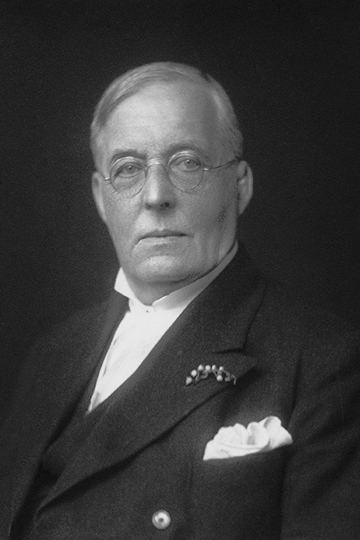
Montague Rhodes James
Montague Rhodes James (1 August 1862 – 12 June 1936) was an English author, medievalist scholar and provost of King's College, Cambridge (1905–1918), and of Eton College (1918–1936). He was Vice-Chancellor of the University of Cambridge (1913–15). Though James's work as a medievalist and scholar is still highly regarded, he is best remembered for his ghost stories, which some regard as among the best in the genre. He redefined the ghost story for the new century by abandoning many of the formal Gothic clichés of his predecessors and using more realistic contemporary settings. However, his protagonists and plots tend to reflect his own antiquarian interests. Accordingly, he is known as the originator of the "antiquarian ghost story". James was born in a clergy house in Goodnestone, Dover, Kent, England, although his parents had associations with Aldeburgh in Suffolk. His father was Herbert James, an Evangelical Anglican clergyman, and his mother, Mary Emily (née Horton), was the daughter of a naval officer. He had two older brothers, Sydney and Herbert (nicknamed "Ber"), and an older sister, Grace. Sydney James later became Archdeacon of Dudley.[2] From the age of three (1865) until 1909 James's home, if not always his residence, was at the Rectory in Great Livermere, Suffolk. This had previously been the childhood home of another eminent Suffolk antiquary, Thomas Martin of Palgrave (1696–1771). Several of James's ghost stories are set in Suffolk, including "'Oh, Whistle, and I'll Come to You, My Lad'" (Felixstowe), "A Warning to the Curious" (Aldeburgh), "Rats" and "A Vignette" (Great Livermere).
-

William Shakespeare
William Shakespeare (bapt. 26 April 1564 – 23 April 1616) was an English playwright, poet, and actor, widely regarded as the greatest writer in the English language and the world's greatest dramatist. He is often called England's national poet and the "Bard of Avon" (or simply "the Bard"). His extant works, including collaborations, consist of some 39 plays, 154 sonnets, two long narrative poems, and a few other verses, some of uncertain authorship. His plays have been translated into every major living language and are performed more often than those of any other playwright.[7] They also continue to be studied and reinterpreted.Shakespeare was born and raised in Stratford-upon-Avon, Warwickshire. At the age of 18, he married Anne Hathaway, with whom he had three children: Susanna and twins Hamnet and Judith. Sometime between 1585 and 1592, he began a successful career in London as an actor, writer, and part-owner of a playing company called the Lord Chamberlain's Men, later known as the King's Men. At age 49 (around 1613), he appears to have retired to Stratford, where he died three years later. Few records of Shakespeare's private life survive, this has stimulated considerable speculation about such matters as his physical appearance, his sexuality, his religious beliefs, and whether the works attributed to him were written by others.Shakespeare produced most of his known works between 1589 and 1613. His early plays were primarily comedies and histories and are regarded as some of the best work produced in these genres. He then wrote mainly tragedies until 1608, among them Hamlet, Romeo and Juliet, Othello, King Lear, and Macbeth, all considered to be among the finest works in the English language In the last phase of his life, he wrote tragicomedies (also known as romances) and collaborated with other playwrights.Many of Shakespeare's plays were published in editions of varying quality and accuracy in his lifetime. However, in 1623, two fellow actors and friends of Shakespeare's, John Heminges and Henry Condell, published a more definitive text known as the First Folio, a posthumous collected edition of Shakespeare's dramatic works that included all but two of his plays. The volume was prefaced with a poem by Ben Jonson, in which Jonson presciently hailed Shakespeare in a now-famous quote as "not of an age, but for all time".
-
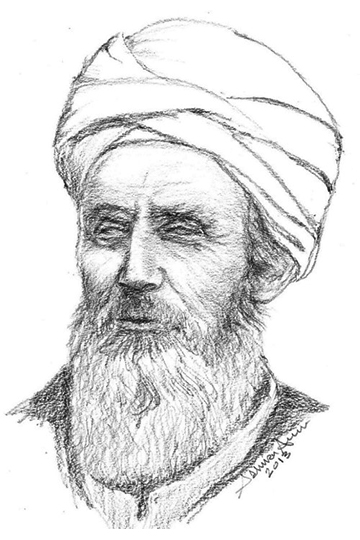
أبو العلاء المعري...
أبو العلاء المعري (363 هـ - 449 هـ) (973 -1057م) هو أحمد بن عبد الله بن سليمان القضاعي التنوخي المعري، شاعر ومفكر ونحوي وأديب من عصر الدولة العباسية، ولد وتوفي في معرة النعمان في محافظة إدلب وإليها يُنسب. لُقب بـرهين المحبسين أي محبس العمى ومحبس البيت وذلك لأنه قد اعتزل الناس بعد عودته من بغداد حتى وفاته. ولد المعري في معرة النعمان (في سوريا حالياً، ينتمي لعائلة بني سليمان، والتي بدورها تنتمي لقبيلة تنوخ، جده الأعظم كان أول قاضٍ في المدينة، وقد عرف بعض أعضاء عائلة بني سليمان بالشعر، فقد بصره في الرابعة من العمر نتيجة لمرض الجدري. كان على جانب عظيم من الذكاء والفهم وحدة الذهن والحفظ وتوقد الخاطر، وسافر في أواخر سنة 398 هـ 1007م إلى بغداد فزار دور كتبها وقابل علماءها. وعاد إلى معرة النعمان سنة 400 هـ 1009م، وشرع في التأليف والتصنيف ملازماً بيته، وكان اسم كاتبه علي بن عبد الله بن أبي هاشم. وقد كان عزم على اعتزاله الناسَ وهو في بغداد، خصوصاً بعد أن ورد إليه خبر وفاة والده، وقدد عزز فكرة ذهابه عن بغداد أنه رأى تنافس العلماء والرؤساء على الجاه، وتيقن "أن الدنيا كما هي مفطورة على الشرور والدواهي"
-
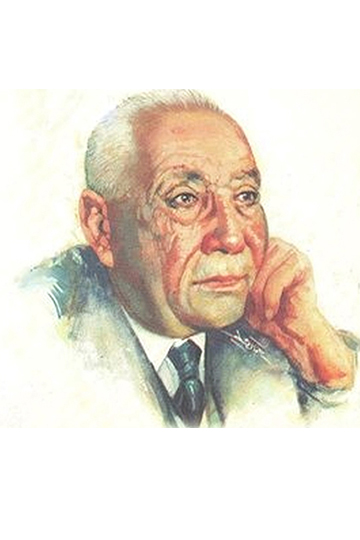
سلامة موسى
سلامة موسى (1887- 4 أغسطس 1958)، هو رائد الاشتراكية المصرية ومن أول المروّجين لأفكارها. ولد في قرية بهنباي وهي تبعُدْ سبعةْ كيلو متراتْ عن الزقازيق لأبوين قبطيين. عرف عنه اهتمامه الواسع بالثقافة، واقتناعه الراسخ بالفكر كضامن للتقدم والرخاء. انتمى سلامة موسى لمجموعة من المثقفين المصريين، منهم أحمد لطفي السيد، الذي نادى بتبسيط اللغة العربية وقواعد نحوها والاعتراف بالعامية المصرية. وكانت حجتهم أن اللغة العربية لم تتغير لأجيال، وأن معظم المصريين أميون، مما دعا موسى وآخرين للمطالبة بالكتابة بالعامية. تتلمذ على يديه نجيب محفوظ الذي يؤثر عنه قوله له "عندك موهبة كبيرة، ولكن مقالاتك سيئة" الأمر الذي دفع نجيب محفوظ إلى العناية في انتقاء مواضيعه. عام 1906 وبسبب مشاكل عائلية يقرر السفر إلى أوروبا وكان انذاك في التاسعة عشرة من عمره. وقد كان لذلك القرار أثر هام في تكوين وعيه وفكره. فسافر إلى فرنسا حيث قضى فيها 3 سنوات من حياته تعرّف من خلاله على الفكر والفلسفة الغربيين وقرأ العديد من المؤلفات فتعرف على فولتير وتأثر بأفكاره كما قرأ لكارل ماركس ومؤلفات لاشتراكيين اخرين كما أنه اطلع هناك على ما توصّلت اليه علوم المصريّات. بعد أن قضى ثلاث سنوات في باريس انتقل إلى إنجلترا لدراسة الحقوق حيث عاش أربع سنوات أخرى، لكنه أهمل دراسته وانصرف إلى القراءة، وانضم إلى جمعية العقليين، والجمعية الفابية والتقى فيها بالمفكر والمؤلف المسرحي الإيرلندي جورج برنارد شو وتأثر بـتشارلز داروين وخصوصا بنظريته حول النشوء والارتقاء.